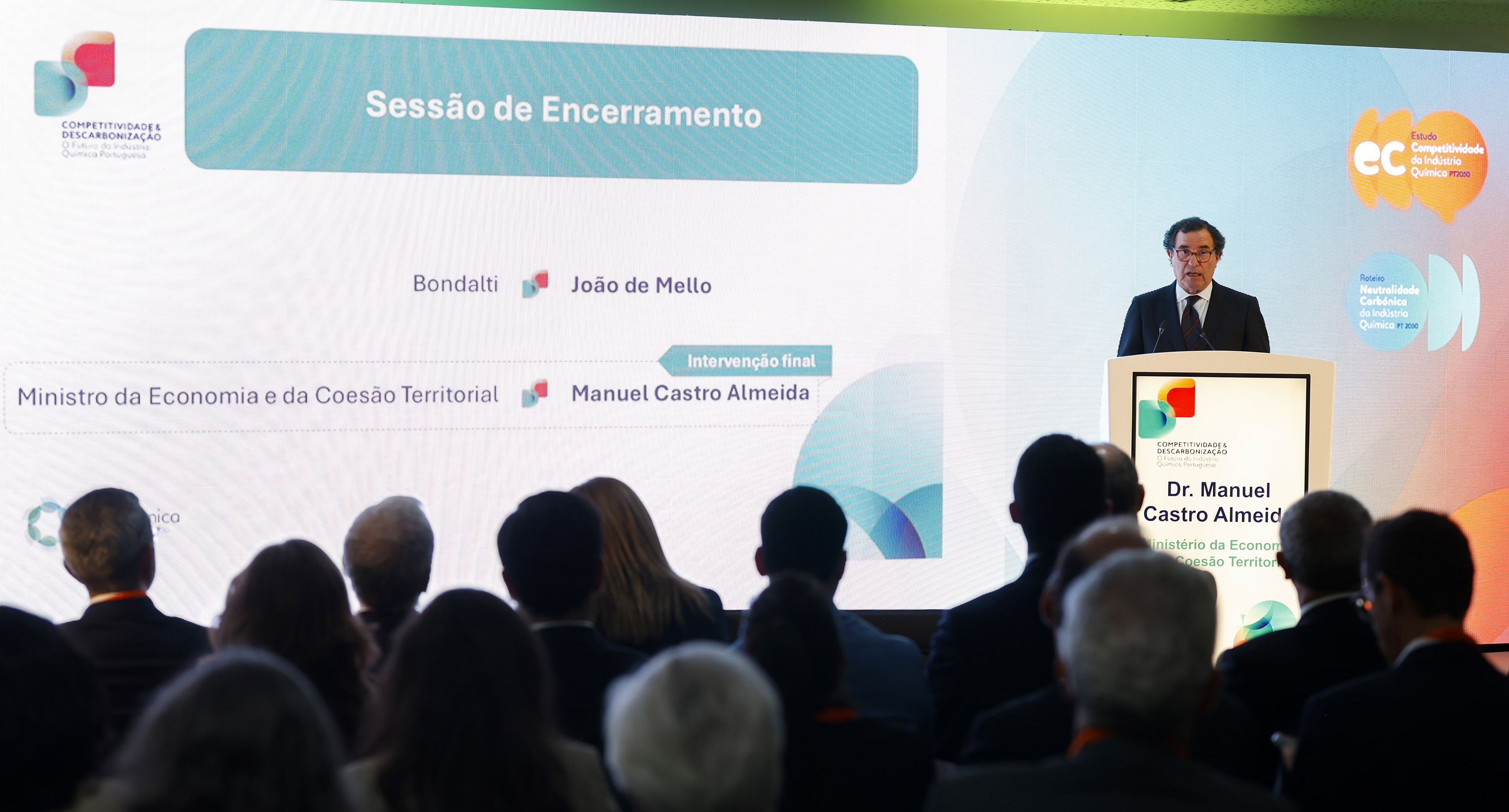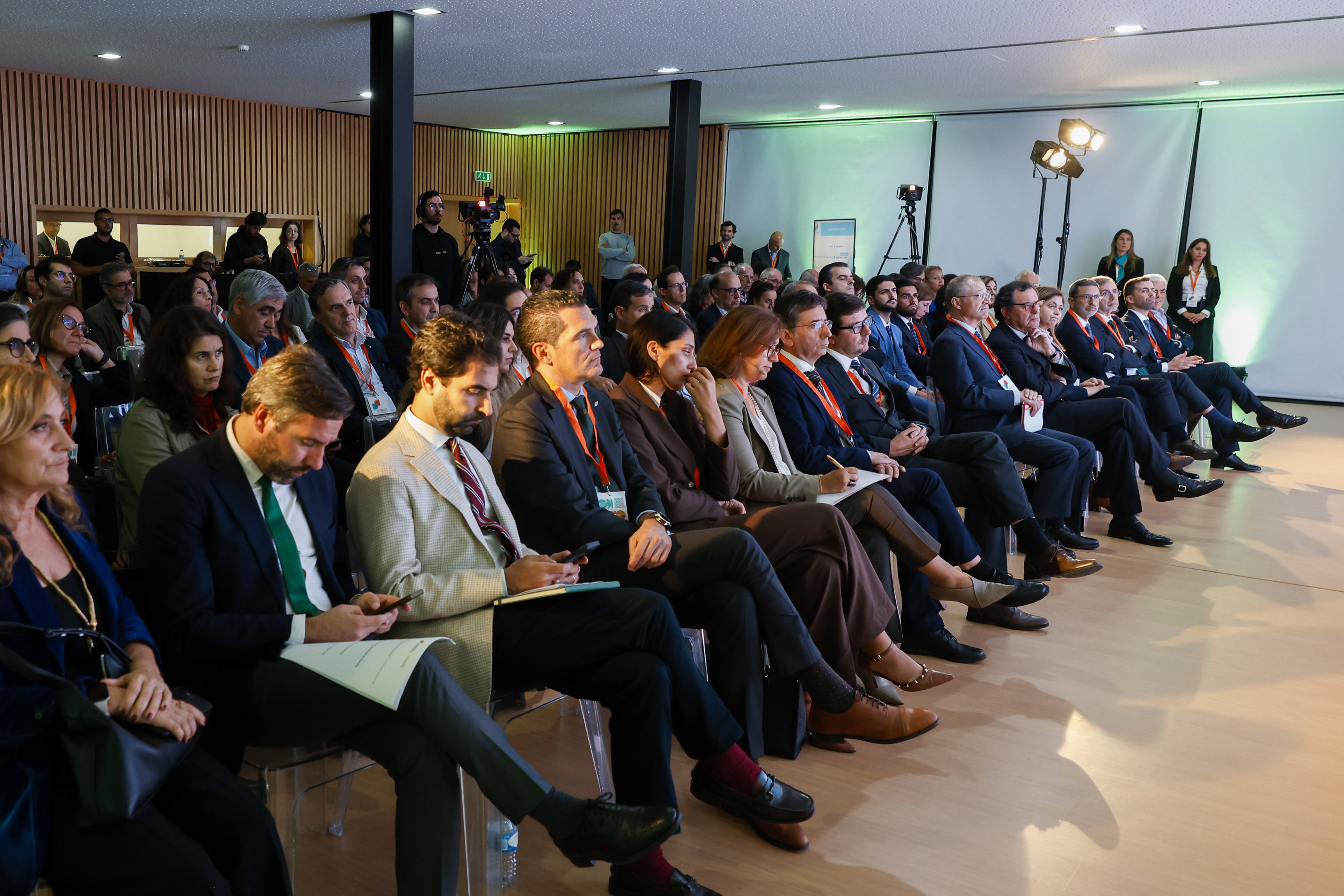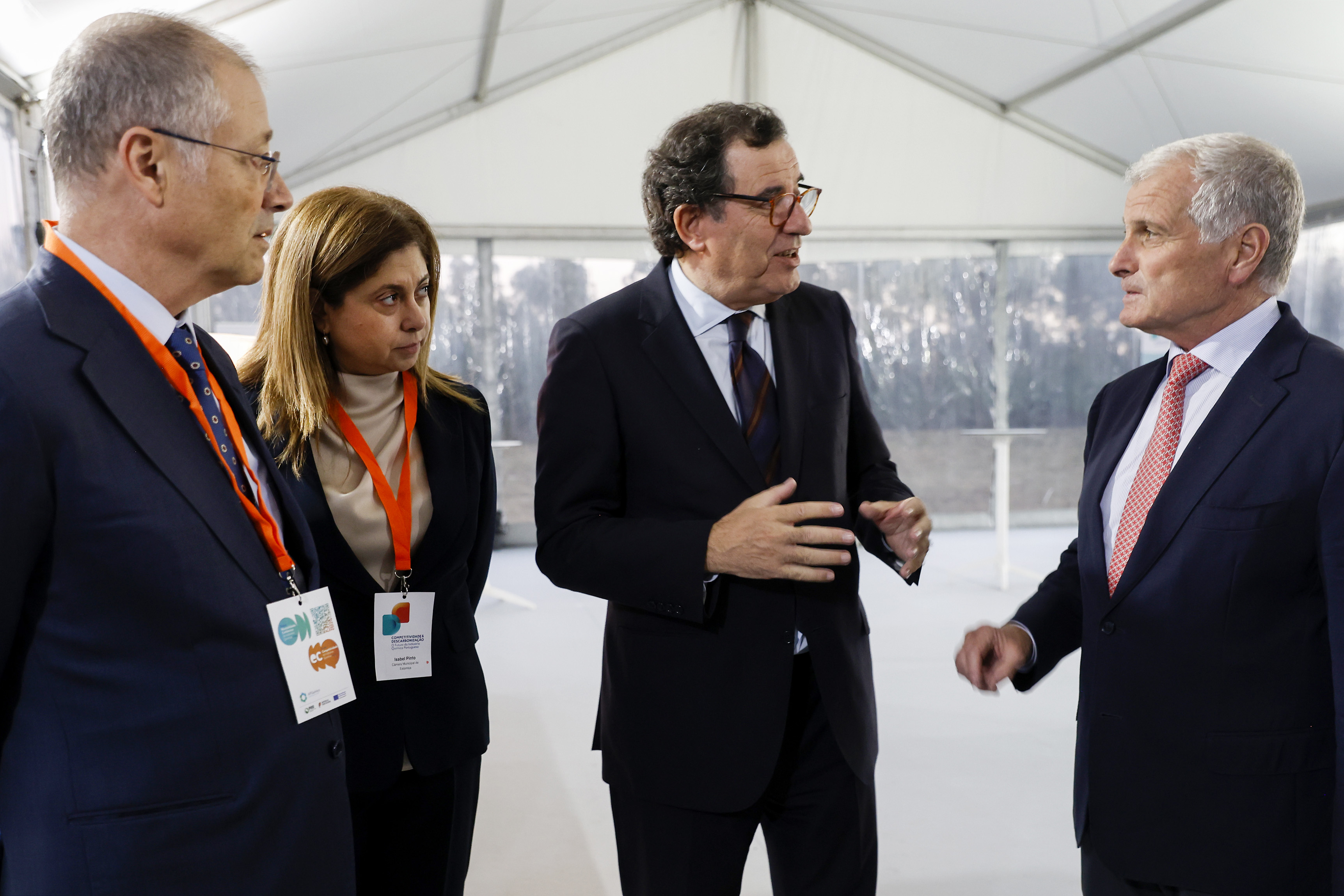APQuímica – Portuguese Association of the Chemical, Petrochemical and Refining Industry – and its members, including Bondalti, promoted the event “Competitiveness & Decarbonisation – the Future of the Portuguese Chemical Industry”, which took place at the Estarreja Chemical Complex.
The initiative, which was attended by the Minister of Economy and Territorial Cohesion, included the public presentation of the conclusion of the design phase of the Roadmap for Carbon Neutrality for the Portuguese Chemical Industry 2050 (RNCIQ PT 2050), which reflects the sector's commitment to decarbonisation and energy transition.
Launched in 2024, the RNCIQ PT 2050 involved the collaboration of around a thousand people and entities, not only from the chemical industry, but also from complementary sectors, academic institutions and public bodies. The aim was to carry out an in-depth diagnosis of the conditions, challenges and opportunities for the Portuguese chemical industry to achieve carbon neutrality by 2050.
During the session, the main challenges to the implementation of the roadmap were discussed, which establishes different transition paths based on the principle of technological neutrality: there is no single formula for decarbonising the chemical sector.
Thus, RNCIQ PT 2050 defines four complementary scenarios for decarbonisation and energy transition, with a total estimated investment of €30 billion: Electrification; Green hydrogen and other renewable and low-carbon gases; Circular economy and biomass; Carbon capture, utilisation and storage (CCUS).
These scenarios offer industry different possible paths towards carbon neutrality, while enabling it to support the decarbonisation of other economic sectors in the same transition process. As APQuímica points out, chemistry, petrochemicals and refining are not agnostic to the problem, but also constitute the first solution for decarbonising the economy, as they represent the initial stage of the value chains of virtually all economic activities.
For the President of APQuímica, Luís Gomes, "the completion of this first phase of RNCIQ PT 2050 is a fundamental milestone for the Portuguese chemical industry. For the first time, the sector has come together around a common vision and a structured plan to achieve carbon neutrality, based on scientific evidence, broad dialogue and a real commitment to innovation and competitiveness. With the diagnosis and planning completed, we are stepping up our efforts in the next phase: that of action and implementation."
Presentation of the new “Competitiveness Study”
The event agenda also included the presentation of the “Competitiveness Study” of the Petrochemical, Chemical and Refining Industry (IPQR), the only study of its kind in Portugal focused solely on the competitiveness of this industry.
Promoted by APQuímica, the study comes at a time of geopolitical and economic changes that are putting strong pressure on European industrial competitiveness, providing a detailed diagnosis of the competitive positioning of the national IPQR vis-à-vis the European Union.
Among its main conclusions, the study highlights the need to protect and strengthen the competitiveness of the national sector, proposing that Portugal join the Critical Chemicals Alliance and ensure that the chemical clusters of Sines, Estarreja and Lisbon/Setúbal are included in the ongoing process of identifying critical sites to be preserved within the European Union.
The study also stresses that the guarantee of abundant, green energy at a competitive cost is an essential condition for the future of the sector, advocating:
- The strengthening of indirect CO₂ compensation, bringing it closer to the maximum limit allowed by the European Commission and extending it to non-CELE companies, as is already the case in other Member States;
- The recovery of national mechanisms, such as the ‘Iberian mechanism’ and ‘Apoiar Gás’, to mitigate energy price volatility in contexts of instability;
- Strengthening the network infrastructure and access/injection points for electricity-intensive industrial facilities (EIIs), and urgently implementing the various mechanisms defined in the Electricity-Intensive Customer Statute;
- Implementing simple, stable and predictable regulation that allows for a competitive and attractive environment for new investments.
The study identifies that the Portuguese legal framework for the chemical industry is less favourable than that of other competing European countries, which has made new investments unviable and threatened the permanence of strategic sites that have been established in Portugal for decades. Cases such as licence renewals that are more than ten years overdue or legislative transpositions without the timely participation of the affected industry exemplify this reality.
APQuímica therefore advocates greater inclusion of the industry from the outset in the legislative processes that impact it, avoiding gold-plating (over-regulation), delays and omissions, and simplifying licensing processes (allowing, for example, the same company to conduct several processes simultaneously, in line with the practice of most EU Member States).
Additionally, at a time when the national chemical industry faces growing challenges to its exports, the sector advocates a balanced and European response to address current distortions in international trade. This response should combine industry protection mechanisms with fair, predictable and reciprocal trade rules in relations with the US and China.
Luís Gomes, president of APQuímica, says that "this study confirms that competitiveness is the biggest challenge facing the Portuguese chemical industry. Without a predictable regulatory framework, competitively priced energy and industrial policies aligned with Europe, the country risks losing strategic assets and decades of know-how. The Portuguese chemical industry wants to lead the transition, but it needs the state and regulation to be up to the challenge."










